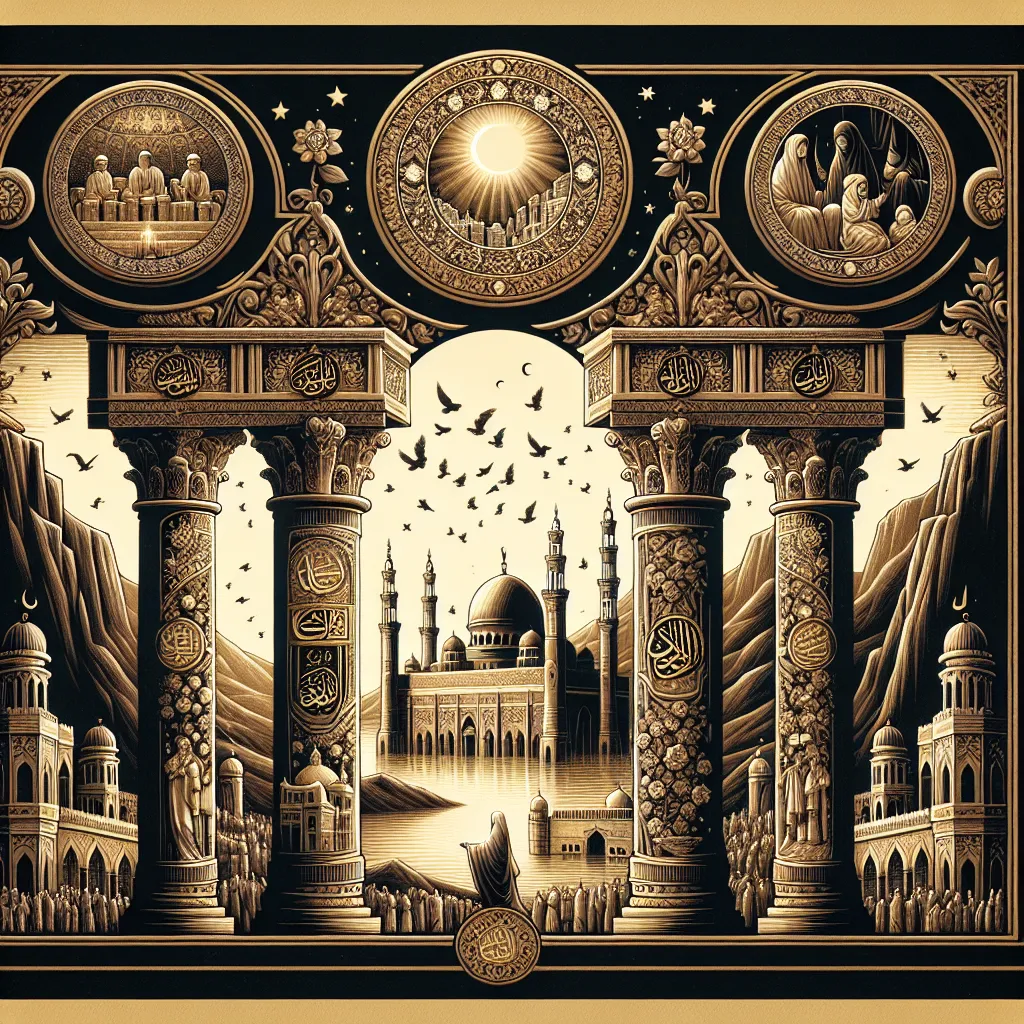
- Published on
- Authors

- Name
- You
The Five Pillars of Islam: The Foundation of Muslim Faith and Practice
Islam, one of the world's major religions, is built upon a foundation known as the Five Pillars. These pillars not only serve as the bedrock of Muslim faith but also guide their daily practices, creating a harmonious balance between the spiritual and the material. Let's delve into these foundational elements, as taught by the Prophet Muhammad, and unravel their immense significance.
1. Shahada: Declaration of Faith
Essence of Shahada
The Shahada is the very first pillar and is often regarded as the gateway to Islam. It is a simple yet profound declaration:
"There is no god but Allah, and Muhammad is the Messenger of Allah."
This declaration affirms monotheism and acknowledges the prophethood of Muhammad. By uttering these words with conviction, a person enters the fold of Islam.
Significance and Practice
- Spiritual Role: It fosters a deep personal connection with Allah, establishing a singular focus on divine worship.
- Social Harmony: It unifies Muslims worldwide through a shared testament of faith.
2. Salah: Prayer
Rhythm of Five Daily Prayers
Praying five times a day is a cornerstone of a Muslim's daily routine. These prayers occur at specific times: Fajr (dawn), Dhuhr (midday), Asr (afternoon), Maghrib (sunset), and Isha (night).
The Structure of Salah Table
| Time of the Day | Prayer Name | Description |
|---|---|---|
| Dawn | Fajr | A gentle reminder at the break of dawn |
| Midday | Dhuhr | A midday pause to refocus on purpose |
| Afternoon | Asr | Invigoration as the day progresses |
| Sunset | Maghrib | Reflection as night falls |
| Night | Isha | Completing the day with gratitude |
Spiritual and Social Impact
- Strengthening Inner Peace: Through regular prayer, Muslims cultivate tranquility and patience.
- Community Connectivity: Collective prayers in mosques foster unity and mutual support.
3. Zakat: Charity
Giving as a Means of Purification
Zakat, often translated as almsgiving, requires Muslims to donate 2.5% of their accumulated wealth annually to those in need.
Core Principles and Benefits
- Compassion and Justice: Zakat ensures societal equity by redistributing wealth.
- Spiritual Cleansing: It purifies the soul from greed and selfishness.
4. Sawm: Fasting During Ramadan
The Power of Fasting
During the holy month of Ramadan, Muslims fast from dawn till dusk, refraining from food, drink, and other physical needs.
Profound Lessons of Sawm
- Empathy: Experiencing hunger and thirst deepens empathy for the less fortunate.
- Self-Discipline: Fasting increases self-control and spiritual resilience.
5. Hajj: Pilgrimage to Mecca
The Journey of a Lifetime
Hajj is an obligatory pilgrimage to Mecca, required once in a lifetime for those who are physically and financially able.
Key Elements of Hajj
- Unity in Diversity: Millions gather, transcending racial, cultural, and economic differences.
- Symbolic Acts: Rituals like Tawaf (circumambulating the Kaaba) and Sa’i (running between Safa and Marwah) symbolize the trials of prophets and reinforce faith.
Conclusion
The Five Pillars of Islam form a comprehensive framework, blending spiritual depth with social responsibility. They intricately weave the individual’s spiritual journey with the collective well-being, promoting a balanced life filled with purpose, compassion, and unity. By understanding and embracing these pillars, both Muslims and non-Muslims can appreciate the profound wisdom and holistic nature of Islamic faith and practice.
